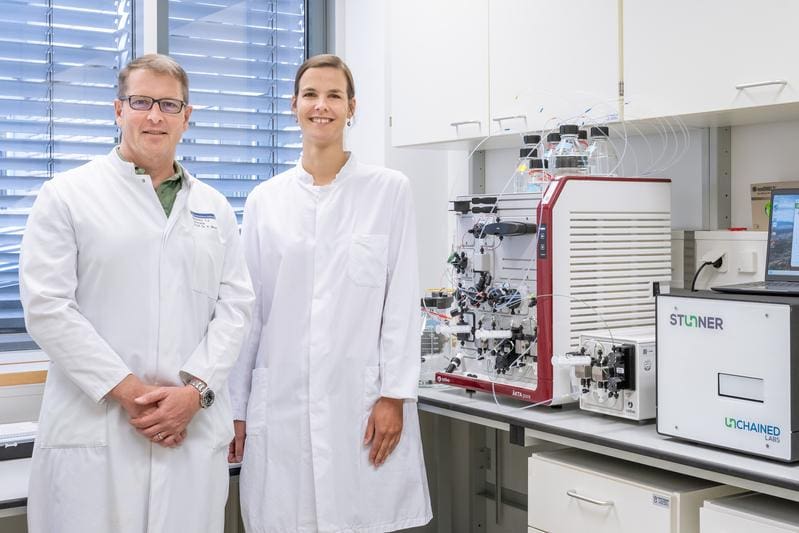Dietmar Hopp Foundation supports gene therapy research in Heidelberg
With a grant of 1.2 million euros, the Dietmar Hopp Foundation is supporting the establishment of an experimental production unit for gene therapeutic viruses at the Heidelberg Medical Faculty of Heidelberg University. The new unit, located in the Department of Cardiology, Angiology and Pneumology at Heidelberg University Hospital (UKHD), strengthens the pioneering role of the Heidelberg Medical Campus in the development of innovative gene therapies for chronic heart failure and brings them a decisive step closer to clinical application.
Gene therapies offer the potential to treat previously incurable diseases by correcting genetic defects. In this process, intact genes are introduced into the affected cells with the help of adeno-associated viruses (AAV) ŌĆō so-called “gene taxis” ŌĆō in order to restore their impaired functions. The research group led by Prof. Patrick Most and Dr. Julia Ritterhoff has been researching such therapies for chronic heart failure for over 15 years. After successful tests on mice, testing on the large animal model pig is now on the agenda, for which larger quantities of therapeutic viruses are required.

The new production unit enables the production, purification and quality control of these viruses in sufficient quantities under strict regulatory conditions. It includes heatable fermenters with a capacity of up to 200 liters of culture medium, a purification system and equipment for checking virus quality. With this equipment, optimal production conditions for industrial production can be prepared, which should accelerate the path to clinical application. In the coming years, the unit will also be available to other research groups at the Faculty of Medicine for the development of new gene therapies.
Research on gene therapy has been a long-standing focus of the Department of Cardiology, Angiology and Pneumology and the German Center for Cardiovascular Research (DZHK). An article recently published in the journal Circulation by the team led by Most, Ritterhoff and Prof. Norbert Frey describes a novel, heart-specific AAV that specifically targets heart muscle cells. This prototype reduces adverse effects in other organs and lays the foundation for a new generation of gene therapies. The funding from the Dietmar Hopp Foundation strengthens Heidelberg’s position in the National Initiative for Gene and Cell Therapies and supports the seamless transition from basic research to clinical application.
Original Paper:
Zeissler D, Busch M, Grieskamp S, et al. Novel Human Heart-Derived Natural Adeno-Associated Virus Capsid Combines Cardiospecificity With Cardiotropism In Vivo. Circulation. 2025; 152(6):416-419. doi:10.1161/CIRCULATIONAHA.124.070236
Editor: X-Press Journalistenb├╝ro GbR
Gender Notice. The personal designations used in this text always refer equally to female, male and diverse persons. Double/triple naming and gendered designations are used for better readability. ected.




